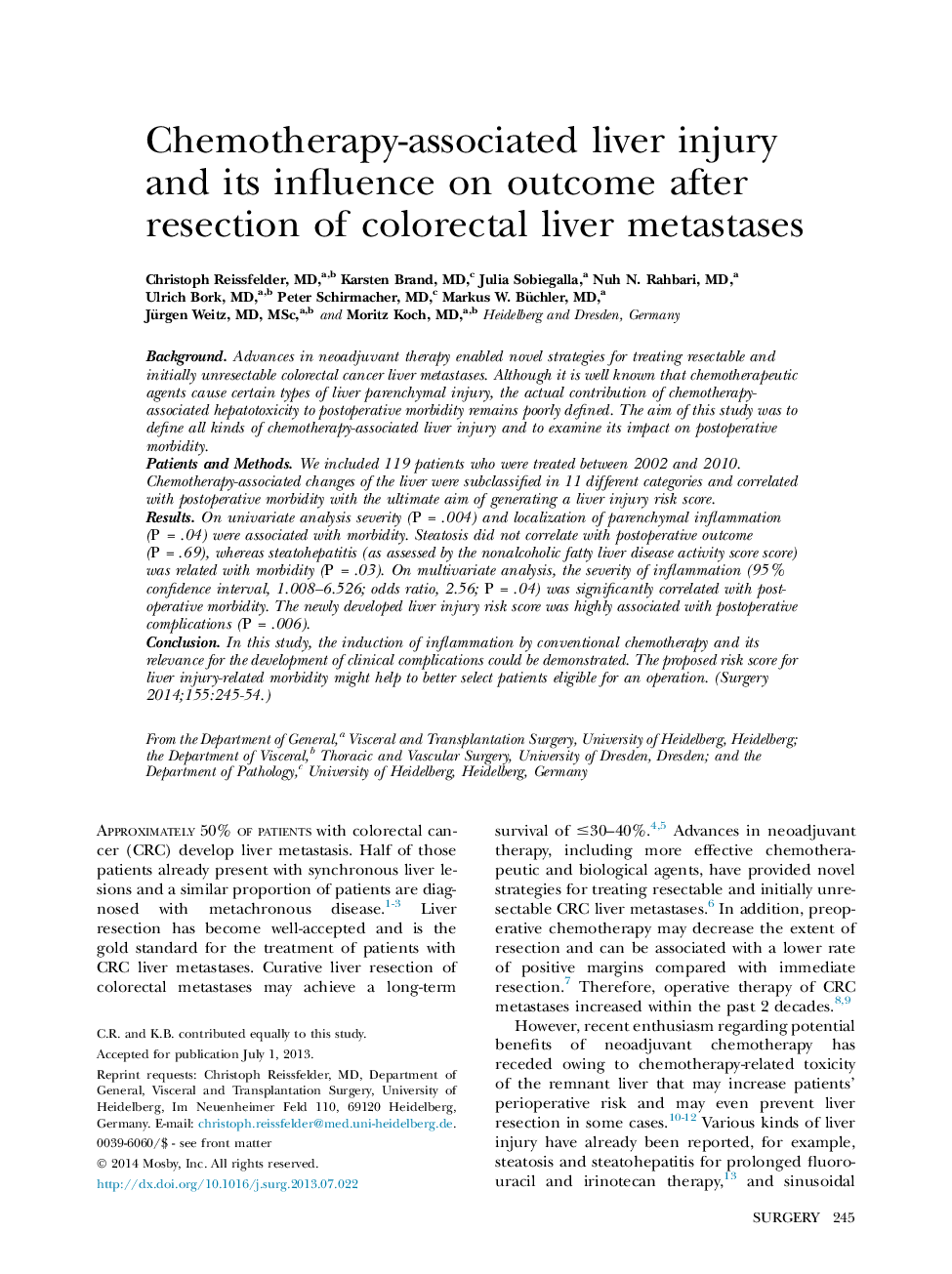| Article ID | Journal | Published Year | Pages | File Type |
|---|---|---|---|---|
| 4308230 | Surgery | 2014 | 10 Pages |
BackgroundAdvances in neoadjuvant therapy enabled novel strategies for treating resectable and initially unresectable colorectal cancer liver metastases. Although it is well known that chemotherapeutic agents cause certain types of liver parenchymal injury, the actual contribution of chemotherapy-associated hepatotoxicity to postoperative morbidity remains poorly defined. The aim of this study was to define all kinds of chemotherapy-associated liver injury and to examine its impact on postoperative morbidity.Patients and MethodsWe included 119 patients who were treated between 2002 and 2010. Chemotherapy-associated changes of the liver were subclassified in 11 different categories and correlated with postoperative morbidity with the ultimate aim of generating a liver injury risk score.ResultsOn univariate analysis severity (P = .004) and localization of parenchymal inflammation (P = .04) were associated with morbidity. Steatosis did not correlate with postoperative outcome (P = .69), whereas steatohepatitis (as assessed by the nonalcoholic fatty liver disease activity score score) was related with morbidity (P = .03). On multivariate analysis, the severity of inflammation (95% confidence interval, 1.008–6.526; odds ratio, 2.56; P = .04) was significantly correlated with postoperative morbidity. The newly developed liver injury risk score was highly associated with postoperative complications (P = .006).ConclusionIn this study, the induction of inflammation by conventional chemotherapy and its relevance for the development of clinical complications could be demonstrated. The proposed risk score for liver injury-related morbidity might help to better select patients eligible for an operation.
